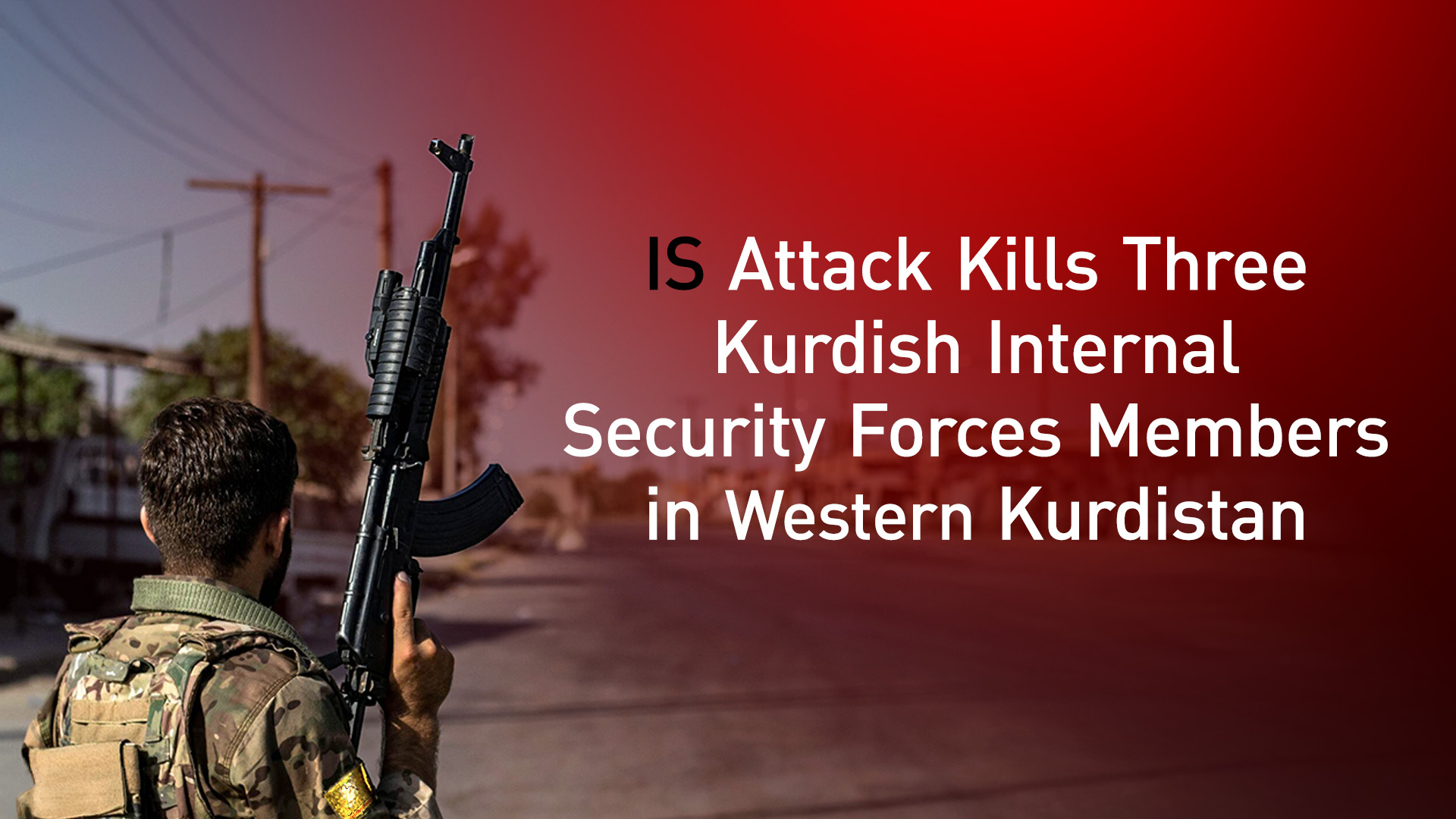Three Asayish Members Killed in ISIS Landmine Attack on Raqqa-Hasaka Road
Three Asayish killed in ISIS attack on Raqqa-Hasaka road, amid rising ISIS insurgency in Western Kurdistan. Group has carried out 104 attacks in 2025, targeting SDF & civilians.

By Ahora Qadi
ERBIL (Kurdistan 24) – Three members of the Internal Security Forces (Asayish) in northeast Syria (Western Kurdistan) were killed on Sunday after their patrol vehicle struck a landmine planted by suspected Islamic State (ISIS) militants on the Raqqa-Hasaka road, according to an official statement from the Asayish.
The blast occurred around 9:00 a.m. as the patrol was securing the strategic route, part of ongoing efforts to protect civilian traffic and suppress rising ISIS activity in the region. One additional member of the force sustained injuries and is currently receiving medical treatment.
“This terrorist act comes amid the escalating activity of ISIS in various areas of north and east Syria, particularly around al-Hol and some rural areas of Raqqa and Hasaka, where recent attacks and infiltrations have targeted the stability and security of civilians,” the Asayish said in a statement.
Escalating Insurgency Across DAANES Territories
The attack reflects a broader resurgence of ISIS activity in areas governed by the Democratic Autonomous Administration of North and East Syria (DAANES). According to the Syrian Observatory for Human Rights (SOHR), ISIS cells have carried out 104 attacks in DAANES-controlled territories since the beginning of 2025. These operations—ranging from ambushes and assassinations to bombings—have left 40 people dead, including 27 members of the Syrian Democratic Forces (SDF) and affiliated formations, 8 ISIS militants, and 5 civilians.
In Raqqa province, where Sunday’s attack took place, SOHR has recorded seven separate ISIS operations this year, resulting in the deaths of five security personnel—including SDF and Asayish members—and one ISIS fighter. Eight others were injured.
ISIS Expands Attacks Beyond DAANES Territory
The resurgence is not limited to Kurdish-administered areas. On May 30, ISIS claimed responsibility for its first attack on the forces of Syria’s new transitional government, which took power following the ouster of Bashar al-Assad in December 2024. That attack, in Suwayda province, involved an improvised explosive device targeting a patrol from the Syrian Army’s 70th Division, killing one soldier and injuring three others.
The SITE Intelligence Group and SOHR confirmed the operation as ISIS’s first publicly acknowledged assault on the new regime.
Call for Vigilance and International Support
Despite the 2019 military defeat of ISIS, largely accomplished through the efforts of Kurdish-led forces backed by an international coalition, the group maintains a network of sleeper cells that continue to pose a persistent threat to security and governance in Syria.
Sunday’s attack serves as a stark reminder of the group’s enduring capability to launch lethal operations against Kurdish security structures and the broader civilian population.